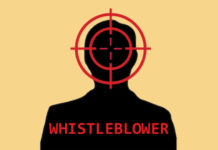Painted Boxes: Death of an Activist
I am an activist, and I am tired. I seem to be living what life would look like if ‘painted into a corner,’ met ‘put in a box’ in a car wreck, leaving the two a tangled idiomatic mess. Here are eleven examples of how activists and advocates are asked to cough up boundless energy while simultaneously being demoralized, devalued, diminished, and used.
Psychiatric Regret
As I was researching my book A Disease called Childhood: Why A.D.H.D. Became an American Epidemic, I came across an interesting pattern in the history of psychiatry. In my mind I made up a name for this pattern and called it “neo-Kraepelinian Regret,” named after the 19th century German psychiatrist Emil Kraepelin. Kraepelin was interested in classifying mental disorders by their symptoms so that psychiatrists would have a common language with which to communicate. His most famous contribution is his classification of the different forms of psychosis into manic depression, dementia praecox (which later became known as schizophrenia), and paranoia.
Mindfulness and Complex Trauma: The Rewards and the Risks
What media hype and those selling mindfulness don’t tell you is that mindfulness is a process that can radically transform you, and it’s not always safe, nor is it easy or straightforward. We make it safer by being aware of the risks and learning to listen to our own bodies about when it is or isn’t okay for us. No one else actually knows.
Heroes of Science: Survival of a Whistleblower
I am just the messenger, the symbol that healthcare is in many ways absurd and harmful because the drug industry is too powerful. The Cochrane Collaboration is in deep crisis because it is too close to industry, practices scientific censorship and has a business model that focuses on “brand” and “our product” rather than getting the science right.
Failures of the Medical Model
Saying we do not like the medical model will not make that model go away. I do not think we resolve these problems simply by declaring that emotional distress is not a medical concern.
I’m Going, Are You? How to Get Involved in the Annual Protest of...
On May 4, 2014, I will be speaking out with many others at the Annual Protest of the American Psychiatric Association, which is organized this year by MindFreedom International and the Law Project for Psychiatric Rights. It is just a few days away and I am so inspired by the outpouring of support people have given to this effort! There are literally people coming to the protest from all over the country - including Alaska, Florida, Massachusetts, and Detroit (that I know of).
In Memoriam: Paula Joan Caplan
Paula Caplan, known for her fierce criticism of psychiatry and its diagnostic manual, died Wednesday at age 74.
BBC Interview with Lucy Johnstone from British Psychological Society
Lucy Johnstone from the British Psychological Society on the influential BBC radio news programme, Today (13th May 2013), a great room 101 on changing...
Study 329: By the Standards of the Time
The controversy over “Study 329” on the effects of Paxil in teen depression has raised questions about the state of ALL medical research. I decided to look at the research for the most recent psychiatric drug approved by the FDA, a new antipsychotic called cariprazine or Vraylar. I located twenty studies of Vraylar on www.ClinicalTrials.gov, the U.S. government-sponsored registry for clinical trials. Three were still in process, and seventeen were completed. Not one had shared its results on the government website, a supposedly mandatory step.
Changing the Role of Case Management
When I became a case manager at a community mental health agency in Cincinnati, Ohio, I had a bachelor’s degree in journalism, 11 months of experience working in the advertising world, and 10 months of serving with AmeriCorps under my belt. I was not the most qualified person for the position, but I was hungry for experience in the mental health field, and I was determined to be good at the job. My supervisor said he hired me because he knew I had the interpersonal skills to do the work, and that he could teach me the rest. Two of the main axioms I learned as a case manager were that mental illnesses are due to chemical imbalances, and psychotropic medications are the solution. As a result, I spent an abundance of energy negotiating with my clients to take their meds or try new ones that the pharma reps encouraged us to promote.
Rejuvenating Abolitionism of Psychiatric Labels — Even Some Establishment Psychiatrists Embarrassed by New DSM-5
When even some establishment psychiatrists are delegitimizing DSM-5, it becomes far easier to delegitimize psychiatric labels.
The Sunrise Center 2017
An update on the Sunrise Center Project, a survivor-run project aiming to help people come off psychiatric drugs using Re-evaluation Counseling. We don’t think it’s down to just the person trying to get off drugs to deal with their issues and feelings about it. We think the people around them need to deal with their own issues and feelings about the process too.
“Tuff” Love: A Public Safety Alternative
It is no mystery why everyone at the McNair Discovery Learning Center is alive today. Antoinette Tuff was respectful, responsive and kind to a man with a gun. She shared her own difficulties and offered her own humanity. This kind of “Tuff Love” involves real risk, but not more risk. It reaches across vast expanses of human confusion and distress - not to manage, control or subdue - but to attempt connection and offer a lifeline back to humanity. It is the public safety work of the future.
Building a Culture of Mental Well-Being
We used to turn to family, community, and religious/philosophical teachings to ease our despair. Now, one is expected to turn to psychiatrists and therapists. With depression rates rising throughout the world, modern society must find a way to enhance the individual’s capacity to build a meaningful, satisfying, and self-actualized life.
Psychiatry’s War on Free Will
Psychiatry’s main role was always to forcibly negate the free will of society’s outliers. Its methods included forced removal, confinement, and electrical, surgical, and chemical lobotomy. But then it sought to lure non-outliers into willingly allowing psychiatry to negate their free will, too. So it devised ways to trick people into "lobotomizing" themselves.
What Happens When A Peer Is Accused of Relapsing?
Once my colleague started spreading her conviction that I was relapsing, the whole agency began scrutinizing my behavior. As a peer, you’re under constant suspicion.
Critical Psychiatry Textbook, Chapter 16: Is There Any Future for Psychiatry? (Part Three)
Psychiatry forcefully maintains its delusions, even when the most reliable science has shown that their beliefs are wrong.
Mental Illness as Metaphor
One of the largest public mental health service agencies in my local area asks the question, "What is mental illness?" on their website. In answer they state, "Mental illness is a biologically based disease, much like diabetes or cancer," and "most researchers agree it involves a chemical imbalance in certain parts of the brain." Frequently when we encounter a declarative statement made by a perceived authority, we accept it and integrate that information into our way of thinking about things. But is this statement accurate? What is its basis, and what is the evidence behind the statement? We are told that "most researchers" agree - is that true?
Behavioural Geneticist Robert Plomin: “There Are No Disorders, There Are Just Quantitative Dimensions”
It is encouraging to hear leading scientists such as Plomin acknowledge that psychiatric diagnoses are fundamentally arbitrary and that the idea of a “cure” does not make sense with regards to psychological issues.
From Horse Ranch to Home Ground: Healing Families via Telehealth
Since COVID, NISAPI has transitioned our collaborative therapy setting from barns and fields to kitchens and living rooms. Our clients report similar positive outcomes with telehealth as in person.
Please Defend the Right to Bear Arms
I remember the first time I read the Bill of Rights. I was a child suffering with extreme states and didn’t have any idea what I was experiencing. I believed and I was told that I was different. At the same time, I watched my mother get fired from a job she worked so hard for and went to school for, because of a diagnosis. I then watched all her rights stripped away in psychiatric hospitals. Through it all I felt hope because of those rights contained in the Constitution.
Boycott The DSM-5: Anachronistic Before Its Time
When plans for the DSM-5 were first announced about ten years ago, most folks’ reaction was “Why?”. Many of us asked that same question several times as the publication date for the new tome kept on getting pushed back. Finally, the curtain enshrouding the DSM-5 Task Force and its several committees began to part and proposed revisions/additions began to appear on its website. To our dismay, we found our question answered.
The Perils of Direct-to-Consumer Advertising
The job of educating the public on common medical conditions and the range, efficacy, benefits, and risks of potential treatment options should be undertaken by an independent and objective government health agency, not a for-profit, multi-billion dollar industry with a conflict of interest.
Thoughts on the Nature of Emotions
I recently finished reading Joseph LeDoux’s wonderful book Anxious: Using the Brain to Understand and Treat Fear and Anxiety. LeDoux has written numerous books and articles on fear over many decades now, with an accessible that makes neuroanatomy and neuroscience easy to understand. LeDoux studies the brain, but readers of this site would want to know that he is dubious about drugs being the answer to ameliorating anxiety or fear. He raises questions regarding which domains of behavior belong to the brain and which domains belong to mind.





















